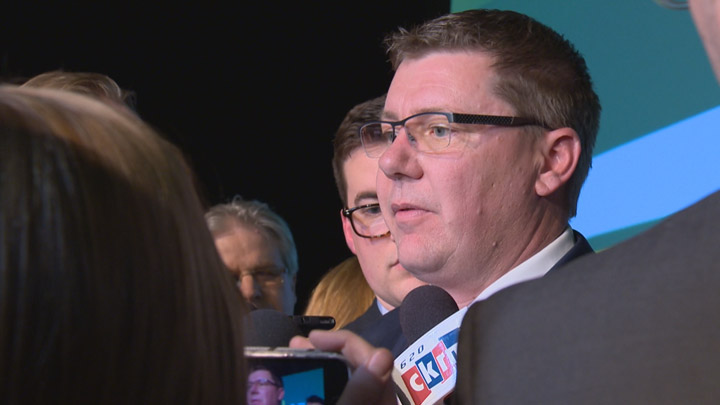Premier Scott Moe says that Saskatchewan will be filing a lawsuit over the proposed federal carbon tax through the province’s court of appeals in “the coming weeks”.

The framework for how the federal government would enact a carbon tax is included in the 556 page omnibus budget bill, Bill C-74. The bill also includes measures like tobacco labeling information and a Canadian Forces income support benefit.
“We’ve always said we would meet them in the courts if necessary. The reason we’ll be doing that is the carbon tax just simply does not work. Nowhere in the world does a carbon tax actually reduce emissions,” Moe said.
If Saskatchewan is unsuccessful in their lawsuit, the federal government will impose a $10/tonne price on carbon and eventually a $50/tonne price in 2022.
Moe says he is very confident that Saskatchewan will win a court case against having a carbon tax imposed.

Get breaking National news
“Provincial resources have always been the provincial jurisdiction and that continues to be the case,” Moe said.
“I would look forward that other provinces will have a hard look at this as well as this is an infringement on what is traditionally a provincial area of regulation if you will. It’s a slippery slope between carbon taxation and imposing that taxation.”
The province estimates that will cost Saskatchewan $4.5 billion over the next five years. Under the federal plan, that money would all be returned to Saskatchewan, but it would be Ottawa deciding how it is returned to the province.
For example, it could be returned in the form of rebates for individuals or businesses.
Moe pointed to the recent auditor’s report on climate change plans as an example of Saskatchewan’s work to curb emissions. It identified oil and gas, power generation and agriculture as Saskatchewan’s top emitters.
Saskatchewan’s climate plan aims to cut power generation emissions by 40 per cent by 2030, and methane emissions associated with oil and gas by 40 to 45 per cent that same year. While the plan has no established target for agriculture, Moe said work is being done.
“Through investment at the farm gate, investment through places like the Crop Development Centre, as well as the Global Institute for Food Security, agriculture in our province is not only carbon neutral, but a great and unrecognized carbon sink,” Moe said.
Details on how the province plans on challenging a carbon tax will be made public once court papers have been filed.








Comments